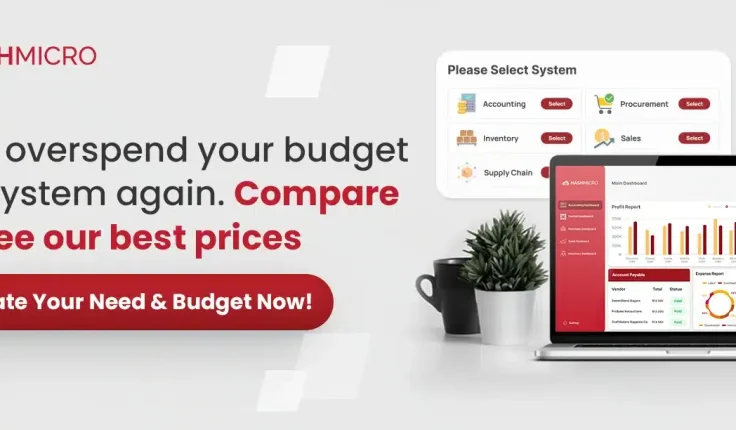Understanding Inventory Management Software and Systems for Modern Businesses

Managing inventory efficiently is one of the most critical aspects of running a successful business. From small enterprises to large corporations, keeping track of stock levels, product movement, and supply chain operations can make or break a company’s efficiency and profitability. This is where inventory management software and systems come into play. By adopting the right tools, businesses can streamline operations, reduce errors, save costs, and enhance customer satisfaction.
What is Inventory Management Software?
Inventory management software is a digital solution designed to monitor, track, and manage a company’s inventory in real-time. Unlike manual processes that rely on spreadsheets and physical counting, this software automates key functions such as stock tracking, order management, demand forecasting, and reporting. Businesses can gain a clear overview of their stock levels, prevent overstocking or stockouts, and optimize the supply chain.
A well-integrated inventory management system can connect with other business software such as accounting platforms, point-of-sale systems, and e-commerce stores, providing seamless data flow and improving operational efficiency.
Why Businesses Need an Inventory Management System
An inventory management system is more than just a tool to record stock; it’s a strategic solution that helps businesses make informed decisions. Here are several reasons why companies should invest in an effective inventory management system:
1. Improved Accuracy
Manual inventory management often leads to errors due to human oversight. Miscounting, misplaced items, or outdated records can result in financial losses and dissatisfied customers. An inventory management system provides real-time updates, ensuring that stock levels are always accurate and reliable.
2. Enhanced Efficiency
With inventory management software, repetitive tasks such as stock updates, order processing, and report generation are automated. This reduces the time employees spend on administrative work, allowing them to focus on strategic initiatives and customer service.
3. Cost Savings
Maintaining the right inventory levels prevents excess stock that ties up capital or insufficient stock that can halt sales. A robust system provides insights into inventory turnover rates, helping businesses order just the right amount of products at the right time, thus reducing holding costs.
4. Better Demand Forecasting
Inventory management software often includes analytics tools that help predict future demand based on historical data, market trends, and seasonal variations. Accurate forecasting allows companies to plan purchases effectively, minimizing waste and maximizing profits.
5. Enhanced Customer Satisfaction
Customers expect products to be available when they need them. By implementing an inventory management system, businesses can ensure timely order fulfillment, reduce backorders, and improve overall customer experience.
Features of the Best Inventory Management Software
Not all inventory management software solutions are created equal. The best inventory management software offers a combination of features that simplify complex inventory processes and provide actionable insights. Some key features to look for include:
1. Real-Time Stock Tracking
Real-time tracking allows businesses to monitor inventory levels across multiple locations simultaneously. This ensures that products are always available where they are needed and reduces the chances of stock discrepancies.
2. Barcode and RFID Integration
Advanced inventory management systems integrate with barcode scanners and RFID technology, allowing for faster and more accurate stock counting. These tools reduce human error and improve efficiency in warehouses and retail stores.
3. Automated Reordering
The best inventory management software can automatically generate purchase orders when stock reaches a predefined threshold. This ensures businesses never run out of critical items and helps maintain smooth operations.
4. Reporting and Analytics
Comprehensive reporting tools provide insights into inventory performance, turnover rates, and profitability. Analytics help businesses make informed decisions regarding purchasing, sales strategies, and product lifecycle management.
5. Multi-Channel Support
For businesses selling through multiple channels such as physical stores, e-commerce platforms, and marketplaces, the software should provide integrated inventory management across all channels. This prevents overselling and ensures consistent stock information.
6. Supplier and Vendor Management
A good system helps track supplier performance, manage purchase orders, and maintain strong vendor relationships. This feature allows businesses to streamline procurement processes and negotiate better deals.
Benefits of Implementing the Best Inventory Management Software
Investing in the best inventory management software comes with a range of benefits that can transform business operations.
1. Increased Productivity
By automating routine tasks and reducing manual effort, employees can focus on value-added activities such as sales, marketing, and customer engagement.
2. Reduced Operational Costs
Accurate inventory control minimizes losses due to expired or obsolete stock. It also optimizes storage space and reduces unnecessary procurement costs.
3. Enhanced Decision Making
With access to real-time data and analytics, managers can make better decisions about purchasing, stock allocation, and sales strategies.
4. Scalability
As businesses grow, managing inventory manually becomes increasingly complex. Inventory management software can scale with the business, supporting more products, warehouses, and sales channels without sacrificing efficiency.
5. Compliance and Audit Readiness
Many industries require strict inventory tracking for regulatory compliance. An inventory management system ensures accurate records, making audits easier and reducing compliance risks.
Choosing the Right Inventory Management System
Selecting the right inventory management system requires careful consideration of the business’s specific needs. Here are some factors to keep in mind:
1. Business Size and Complexity
Small businesses may require a simpler system with basic features, while larger enterprises need advanced functionality, multi-location support, and integration with other business systems.
2. Integration Capabilities
Ensure that the software can integrate seamlessly with existing tools such as accounting software, e-commerce platforms, and point-of-sale systems.
3. Ease of Use
A user-friendly interface and intuitive navigation reduce the learning curve for employees and promote widespread adoption of the system.
4. Customization
The ability to customize features according to the unique needs of the business ensures the system adds maximum value and aligns with operational workflows.
5. Support and Training
Reliable customer support, onboarding assistance, and training resources are essential for successful implementation and ongoing system performance.
Trends in Inventory Management Software
The field of inventory management is evolving rapidly, driven by technology and changing business needs. Some key trends include:
1. Cloud-Based Solutions
Cloud-based inventory management software allows businesses to access real-time inventory data from anywhere, reduce IT infrastructure costs, and scale easily.
2. Artificial Intelligence and Machine Learning
AI-powered systems can predict demand more accurately, optimize stock levels, and provide actionable insights to improve overall supply chain efficiency.
3. Mobile Accessibility
Mobile inventory management apps enable warehouse staff, sales teams, and managers to access and update inventory information on the go, enhancing flexibility and responsiveness.
4. Automation and Robotics
Automated warehouses and robotic inventory systems reduce manual labor, speed up order fulfillment, and minimize errors in large-scale operations.
5. Sustainability Focus
Modern inventory management software helps businesses reduce waste and improve sustainability by tracking expiration dates, managing returns, and optimizing stock levels to prevent overproduction.
Conclusion
Inventory management software and systems are no longer optional for modern businesses—they are essential tools for efficiency, cost control, and customer satisfaction. By implementing the best inventory management software, companies can gain real-time visibility into their stock, automate routine tasks, make data-driven decisions, and scale operations effectively.
Choosing the right inventory management system requires understanding business needs, evaluating features, and considering scalability and integration capabilities. With technological advancements such as AI, cloud solutions, and mobile accessibility, businesses now have the opportunity to transform inventory management from a routine task into a strategic advantage.
Investing in the right inventory management software is an investment in business growth, operational excellence, and long-term profitability. Companies that embrace these systems can stay ahead of competition, meet customer demands efficiently, and maintain a well-organized, cost-effective inventory.
- TAGS :
Related Posts

Music School in Singapore: A Complete Guide to Music Learning Opportunities
Isabella / February 14, 2026

Care Home Construction: Building Safe, Modern, and Comfortable Facilities
Isabella / February 12, 2026
















